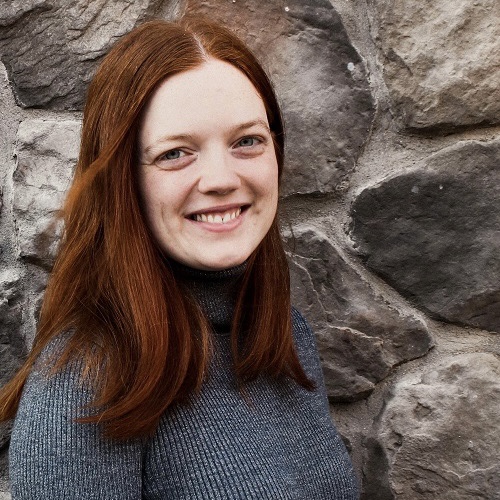Forums › Fiction › Characters › Reserved Characters
- This topic has 14 replies, 10 voices, and was last updated 3 years, 11 months ago by
emily-maynard.
-
AuthorPosts
-
May 11, 2020 at 8:48 am #112166
 Hope Ann
@hope-ann
Hope Ann
@hope-annAnother character question, this one from Kristianne!
I know that most people (myself included) often find energetic, active, and sassy characters (especially girls) more interesting than quiet and reserved characters. One of my main characters is quiet, more passive (although she definitely acts), and proper. How do I make her seem interesting, unique, and compelling to readers without changing her personality?
What do you think, both about the perception of quiet characters being less interesting and about making them interesting?
@princess-foo, @kristianne-hassman, @the-inkspiller, @naiya-dyani, @wolverinerm, @devastate-lastingMay 11, 2020 at 10:32 am #112182 Linyang Zhang
@devastate-lasting
Linyang Zhang
@devastate-lastingI think that having many different kinds of characters is a great way to reach many different kinds of people. People often identify with characters they’re like, so there may be quiet people who like quiet characters XD. Though, of course, it depends on how well they’re executed.
Quiet people are generally sassy too. They just know when to hold their tongue. I think that a great example of this is Jane Eyre from Jane Eyre by Charlotte Bronte. Jane Eyre’s an introvert, but we can see from her thoughts that she is nowhere less sarcastic or sassy than louder characters. So my advice is, that if you’re going to be telling portions of your story from the quiet character’s point of view, make good use of her thoughts.
Another thing that helps quiet characters stand out is an element of mystery. Is your quiet character the real mastermind behind everything? Or do they have a secret past that no one knows about? Maybe they never bothered to introduce themselves and they’re just there. It doesn’t have to be as dramatic as that, though. Quiet people generally have an air of mystery about them if they’re with people who are unfamiliar with them.
Which brings us to my next point. Introverts around close friends can become very loud. At least, for myself, holds true.
Another thing which could help spice up quiet characters is to give them little quirks. For example, if in a scene where everyone is fighting loudly, your quiet character is just trying to reach for that bowl of chicken on the other side of the table, which they love. Of course, generally, the ones who notice quirks are also quiet characters, so that could be another thought. Another thing that could help is, when in a big group of people, observe the quietest people. Which is generally good advice for all characters. For example, I’ve noticed while the loud people were messing around with balloon hats, the quietest guy was playing with his own black one (the only black balloon there) and when it popped, he didn’t say anything, and no one noticed, but the light died a little in his eyes. The smallest details can really develop a character.
I think that concludes with everything. Generally, it’s not about whether or not quiet characters are interesting, it’s about how well the character (or any character) is executed. I hope this helps. Good luck on your writing.
"I set a melody upon the scenery I saw outside my window;
It's beginning in my spacy world."
- TKMay 11, 2020 at 11:19 am #112187 Princess Foo
@princess-foo
Princess Foo
@princess-fooFor POV quiet characters, the important thing to remember is that just because they aren’t loud audibly, that doesn’t mean they aren’t loud mentally. This is where the importance of narrative voice comes in. Where other characters make snide remarks to their friends, the quiet character can say it to herself. She can have just as interesting and unique opinions in her head.
For non-POV characters, you can’ highlight the quiet character by showing what she was doing while the others were talking. Is she eating popcorn watching the other characters argue? Is she quietly solving the problem all on her own? Is she writing down what everyone is saying for review later? While other people use dialogue to get things done, the quiet character uses actions. That’s where you can show her character.
The cake is a lie. acaylor.com
May 11, 2020 at 11:53 am #112189 The Inkspiller
@the-inkspiller
The Inkspiller
@the-inkspiller@hope-ann, @kristianne-hassman
@devastate-lasting and @Princess-Foo have great responses – but I already typed this thing up so I may as well send it in. 😛A quiet, passive, reserved character needn’t be inert.
While others are off gallivanting about, sassing each other and exchanging their witty repartee, she plays the part of the straight man – her anchor of sanity and stability ought to make her stand out just as much among the crowd of relative lunatics.
Your approach will vary based on the POV and the tone of the story. You may be able to present events through her eyes and make her more interesting by giving the reader access to her presumably deeper thoughts as she observes the chaos unfold, and make her more amusing by giving her a droll or sarcastic tone of voice to her thoughts – then contrasting that with her more genteel, politic exterior.Another approach is to highlight her rare moments of action and dramatically accentuate them. Without knowing who your characters are or the story they’re in, here’s an example:
Let’s say your quiet girl is A, and the crazy ones are B, C, and D. A normally just folds her hands and sighs, or occasionally makes a singeing remark when B/C/D embarrass themselves or get themselves into minor trouble –
But when B and C go wandering off into known dangerous territory (e.g. they think they’ll go handle the big bad evil guy by themselves), and D is asking A for advice (or maybe D doesn’t know it’s a trap), contrast A’s normal placidity by having her suddenly rise to the occasion, moving with a purposeful swiftness never before seen to go and save her friends.Because you’re absolutely right, if she’s quiet and passive and does nothing the whole story, she seems kinda boring. You can improve her to foil status by giving her a deeper level of insight than the more surface level / energetic characters, but action and contrast are key to making her a dramatically compelling character; at some point she’s gotta do something.
I don’t think quiet characters are by necessity less interesting but they require a different approach than the “sarcastic witty sassy” type that is much much MUCH more prevalent within modern fiction of all genres. Lively, comedic characters lend themselves to an easily digestible, light-hearted tone for the story (not that this is a bad thing, but it is just a teensy bit derivative (when not done imaginatively)). Quiet characters are by their nature more contemplative and often moody, and do not as easily lend themselves to bright a quirky atmospheres, but tend to stick out like sore thumbs.
I’ve run into this with one of my characters, Myrrha – a troubled sorceress born with horns, claws and a tail – making her look like a stereotypical demon. In earlier drafts, she and the other MC encountered each other and initially conversed with witty repartee (as described above), but given the historical and dramatic tone of the rest of the story, that made absolutely no sense, considering that she looks like a demon to 99% of the medieval people who actually see her.
Later drafts had to zero in on her status as a pariah and what that would realistically mean for her. As a result, she spends a lot more time silent, experiencing the story from other characters’ minds (she’s telepathic) and much of her story is actually entirely dwelling within her thoughts.
She’s very active though – she is constantly doing dumb, impulsive, or outright malicious deeds in pursuit of her desires and urges – or otherwise wrestling with those sinful desires. She’s quiet in the sense that she doesn’t have a TON of dialogue relative to the amount of narration, but she’s otherwise quite verbose – at least internally.I’m not quite sure why I brought that tangent in but I hope it was helpful in some way.
Non nobis Domine, sed nomini, Tuo da gloriam.
May 11, 2020 at 12:49 pm #112195 Kristianne
@kristianne-hassman
Kristianne
@kristianne-hassmanThose are some great thoughts! I especially like how you brought in the example of Jane Eyre. I will try focusing on her thoughts and observations rather than dialogue.
Thank you!
Courage, dear heart.
May 11, 2020 at 12:52 pm #112196 R.M. Archer
@r-m-archer
R.M. Archer
@r-m-archerI feel like these might be basic character things to think about, but they might be particularly helpful to be aware of with a quiet character:
1. They still want things. They’re going to pursue those desires whether they’re loud or quiet, and a character pursuing what they want is pretty much the core of a story. If you give them a compelling desire, you’re already off to a good start.
2. Ask yourself why they’re quiet. Is it because their internal world is more interesting than the external? Is it because they don’t want to take up too much space? Is it because they’ve been hurt in the past? Is it because they just don’t like people? This will not only inform how and when they’re quiet (different reasons for quiet can actually make the quiet itself come across differently, because the characters will behave slightly differently), but also their actions throughout the story.
Kind of a side note, but I really like the enneagram as a tool for figuring out some of my characters’ core motivations and how that informs their behavior. It gets at how people can behave similarly but for different reasons, which can be really helpful.
Speculative fiction author. Mythology nerd. Worldbuilding enthusiast. Singer. Fan of classic literature.
May 11, 2020 at 12:56 pm #112197 Kristianne
@kristianne-hassman
Kristianne
@kristianne-hassmanYou brought up some good thoughts here. Charlotte is the kind of character that would think but not say a sarcastic remark because she naturally doesn’t speak her mind and she’s been taught all her life the proper way to act. Although she does also try to think the best of people and give them the benefit of the doubt, so she tries to repress even her sarcastic thoughts. But I will definitely consider putting some sarcastic remarks in her thoughts to make it more interesting. 🙂
I appreciate your help!
Courage, dear heart.
May 11, 2020 at 1:01 pm #112199 Kristianne
@kristianne-hassman
Kristianne
@kristianne-hassmanYour response was just as helpful! Those are some great points you made. I like what you said about a quiet character being an anchor for the people around her–because that’s exactly what Charlotte is! It’s not that she doesn’t act or is completely passive–it’s just that she has a simple and unassuming personality that tries to think the best of people and help them. Thanks for giving the example of your character. That helps me a lot!
Thanks for weighing in!
Courage, dear heart.
May 11, 2020 at 1:06 pm #112200 Kristianne
@kristianne-hassman
Kristianne
@kristianne-hassmanThose are some great questions you brought up! That’s very true that even quiet characters have desires and motivations–in fact, my character’s desires are very strong. She wants to protect her young daughter at all costs and live a simple life as a healer.
I haven’t given a lot of thought as to why she’s quiet–although I think it’s because she doesn’t like to be in the center of attention and she’s very unsure of herself and self-conscious. But there might be more to that . . . that’s something I should explore further.
That’s a great idea to use the enneagram to understand characters more. I should definitely try that!
Thanks so much for your thoughts!
Courage, dear heart.
May 11, 2020 at 2:07 pm #112211 Naiya Dyani
@naiya-dyani
Naiya Dyani
@naiya-dyani@kristianne-hassman Oooh, I have a quiet character that’s also a healer! He’s probably actually one of the most interesting characters in the whole story. He’s quiet by nature, but he’s also been through a lot of traumatic experiences and is a bit quieter as a result.
I’m trying to think what specifically it is that makes Kiet interesting. Part of it is probably the fact that he’s clearly hiding a lot of secrets and I only reveal them gradually. However, another part is probably what he says/does when he does talk. Even though he’s not chatty, he does have a good amount of dialogue, so I have opportunities to bring his personality out there. What he says shows his kindness, compassion, and gentleness. On the other hand, for a different character, it could show hidden sparkiness or bitterness or hidden anything, really.
Reactions are important, too. With Kiet, he gets bullied a fair amount, but doesn’t really stand up for himself. However, as soon as the same people start bullying one of his friends, he gets very angry and fights them–at first with words, but when they don’t lay off, with his fists.
I asked my writer friend @morreafirebird about this, since she’s been reading my story. Here’s what she said: “Hmm… for quiet/reserved characters, I think what works well in general (and has worked in your story!) is having them be surprising. As in, there’s a lot more to them than what meets the eye. They may say absolutely nothing for while, then, suddenly, they say something very helpful or profound or even funny. I’ve noticed that a bit with Kiet, and I think it works really well. Quiet/reserved people aren’t boring in real life: they just generally seem to have two personalities, one that the world most often sees and thinks is boring, and the other, inner world, which is exciting and rich.”
So yeah, a few scattered thoughts on my side. Hope some of them help!
Hearts are like matter--they can be beaten down, torn, and burned, but they cannot be destroyed.
May 11, 2020 at 2:58 pm #112218 Kristianne
@kristianne-hassman
Kristianne
@kristianne-hassmanThat’s neat! Kiet sounds like an interesting character. I love that advice from your friend, especially that quiet people have two personalities. As a more quiet and introspective person myself, I’ve seen that that’s true. I will think about that as I develop Charlotte.
Charlotte also hides a lot of secrets, and what she says is often kind, caring, and compassionate too. She also doesn’t stand up for herself, but will for her friends, though only in words, never with force.
Thanks so much for your help! I would love to learn more about your character too. Please tag me when you post anything about your story!
Courage, dear heart.
May 11, 2020 at 3:52 pm #112220 Naiya Dyani
@naiya-dyani
Naiya Dyani
@naiya-dyani@kristianne-hassman 😀 Thank you! I’ll be sure to–though most of what I have on here about it is character memes XD
Hearts are like matter--they can be beaten down, torn, and burned, but they cannot be destroyed.
May 12, 2020 at 12:37 pm #112262 Arindown (Gracie)
@arindown
Arindown (Gracie)
@arindownHmm…I actually never really thought about this much. I do wonder sometimes why people gravitate toward sassy, slightly cocky, sarcastic characters, but, being an introvert, all my main characters were shy and quiet for a long time.
I think writing quiet characters is just like writing loud ones. You give them interest with personality, setting, and quirks. And, whereas louder characters may need to be calmed down, quiet characters (as some of you mentioned) might need riled up during the story. A contrasting setting can be good for this. For example, if your character is quiet and passive, giving her a setting where she can’t be quiet and passive will grow her.
Also, I think using more body language with someone who doesn’t talk much is helpful. As is remembering that quiet people do talk, they just don’t talk as much. Often they prefer one-on-one conversations, instead of talking in front of everyone.
"If I'm gonna break, I'll break like the dawn." -Nightbirde
May 20, 2020 at 12:40 pm #112857 Loki
@loki
Loki
@lokiNot sure if this helps, but….
One of my characters (who I’ll just call Loki) is very quiet, he’s not super shy but he doesn’t like to speak unless it’s necessary. One of the ways I help myself to portray this better is to dig deeper. Why is Loki so quiet? Was he always this way?
In Loki’s case, he’s a ex-villain now working with the heroes. He’ll never admit it, but he hasn’t forgiven himself for the things he’s done in this past, and as such he considers himself out of place and an outcast even though the heroes and others have forgiven him and accepted him. He stays in the background, bottling his opinion and thoughts because he’s also scared of himself. He’s scared he’ll scare someone else and lose his place in the Heroes’ group of friends, and he worries that they haven’t really forgiven him.
Loki is an overall softer character now that he’s given up his life as a villain. He wears sweaters and cozy socks, prefers to stay inside, and speaks quietly. He’s also interested in getting a small furry pet to take care of.
Keep in mind that Loki is rather on the extreme side of the quiet-and-reserved spectrum, and remember why your character is the way they are.Giving a character’s behavior a root gives it a purpose.
Hope this helps 😉
May 20, 2020 at 2:41 pm #112865emily-maynard
@emily-maynardI have a few close friends would be considered reserved. For a while, #1 was super reserved and hardly said anything. One day something clicked and she started being herself around me and now, whenever it’s just her and me and other people she knows she’s bubbly and loud. #2 is super sarcastic around people she’s familiar with. Basically, even reserved people have a personality; they just don’t generally show it around unfamiliar people.
-
AuthorPosts
- The forum ‘Characters’ is closed to new topics and replies.













